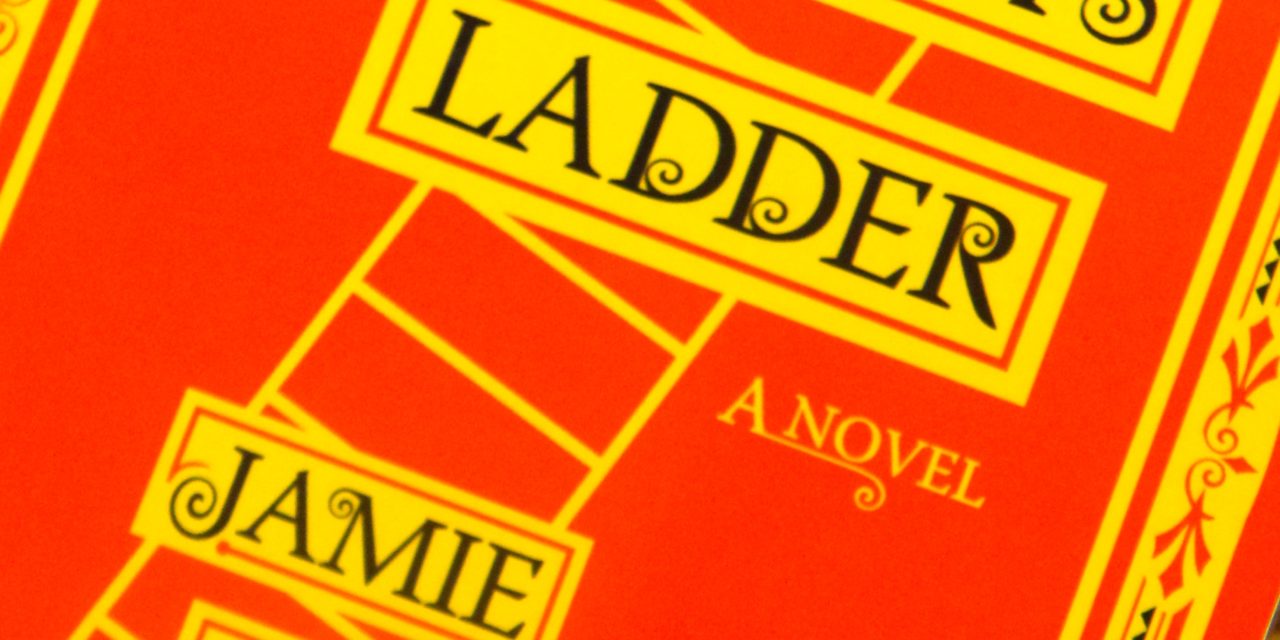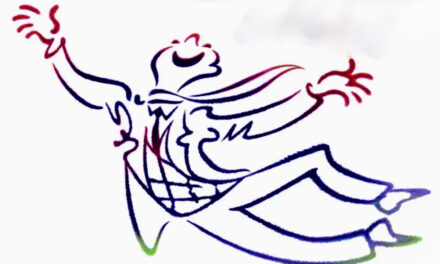The Book
Title: Froelich’s Ladder
Author: Jamie Duclos-Yourdon
Publisher: Forest Avenue Press
Available: J Michaels Books, 160 E. Broadway, Eugene; 541-342-2002
By Daniel Buckwalter
Where are you from? How did you find your way to Oregon? Was it an adventure, or as a child were you towed by the family?
Oregon, even today, is a destination for migrants of all ancestral stripes. The reasons are many and varied. Mostly, it’s for opportunity. It has always been thus, dating back to the early settlers. But are the migrants running to something or from something? And if they are running from something, how long does it take for them to shed the baggage or their burdens, to grow out of their isolation and settle into their new lives? And if they don’t grow, how many people will the migrants take with them to the depths of their despair?
These are the threads of Jamie Duclos-Yourdan’s debut novel, “Froelich’s Ladder.” The Portland-based writer does a fabulous job of creating folklore, set first in the Oregon Country of 1851, through the early days of statehood. Duclos-Yourdan adds a wildly eccentric cast of characters (gypsies, really) who feel they have everything to gain with a new beginning.
Such is the case for Froelich and his brother, Harald, who is 14 months older. They are from Germany. Others are from England and Scotland. Some who arrive later fought for the Confederates in the Civil War. Then there’s Lotsee, a native of the Siletz Tribe, and she, too, wants a fresh start. All want to shed a stifling or troubled past in the untamed, and unregulated, Oregon Country.
The character of Josie, who left Scotland to be with an uncle she barely knows, reflects on this need while walking the Oregon coast:
“Towns were named according to whimsy (Cake, Rainbow, Merlin) or, worse yet, borrowed their identities from existing locales (Glasgow, Denmark, Rome). Finally, and most irksome, there wasn’t any money … If it doesn’t exist, we shall create it; if it isn’t real, we will pretend,” she muses.
“Of course Uncle Francis would thrive in this environment. What might’ve slowed his ascent in Edinburgh (unorthodox work habits and an aversion to hierarchy), here were genuine assets.”
But the initial gasp, the culture shock, is real. Froelich is dumbstruck when he and his brother first see the land they acquired through the Congressionally passed Donation Land Act.
“A bog,” Froelich noisily observed. “It reminds me of a bog, Harald, only without the charm. In California, at least, it’s sunny. At least the people were civilized!”
Harald, though, is smitten with his 300-plus acres and proceeds to build shelter and later a home. Froelich wants back in Germany, until he discovers Lotsee and “The Very Big Tree,” a massive structure that was felled by natural catastrophe and is “thrice as wide as (Froelich) was tall.” It extends for a full kilometer.
Harald sees commercial opportunity, but Froelich wants to build a ladder. “Yes, a ladder! It’ll be amazing, Harald, the tallest ladder you’ve ever seen! Not just the tallest in Oregon Country – possibly the tallest ladder in the entire world! A monument to human achievement! Can’t you picture it?”
And it’s not just for him. “Don’t you see, Harald? It’ll make the perfect engagement gift!”
Froelich, the daydreamer of the two brothers, is immediately taken with Lotsee. “She’s the most beautiful girl I’ve ever seen, with hair as dark as night and eyes that smolder.”
So Harald builds the ladder, which aims for the clouds. It’s later determined to be the fourth-highest ladder in the world. But Lotsee wants to be with Harald, the statuesque of the brothers, not Froelich. She gives birth to Harald’s two sons, Gordy and Binx, dying during childbirth with the second.
Froelich, angered and resentful to the core, climbs the ladder, far above the trees, supported at the bottom by either Harald or a fulcrum that Harald invented — and never comes down.
Thus begins the winding adventures that includes Harald’s accidental death and the characters of Francis, Gak, Josie and Miss Sarah. All of them have secrets, resentments and misplaced loyalty, all of which become lead-weight burdens on the trail of survival in Oregon Country.
This is especially true of Gordy and Binx, the two sons of Harald and Lotsee. After Harald’s death they maintain the ladder for their Uncle Froelich, even though they never see or talk to him. They feel him, though, and that’s enough for Binx, in particular. He’s the larger of the two sons who has stabilized the ladder on his back for years and can feel that Froelich is missing from the ladder.
Gordy climbs the ladder to search for his Uncle Froelich, but he falls, and that begins his new adventures in what is now the state of Oregon. That leaves Binx to shoulder the ladder, not using the fulcrum, all to protect a legacy he has never seen or touched.
“I’m responsible for the ladder,” he tells Miss Sarah, a lifelong friend. “I can’t just walk away because I feel like it. This is a serious responsibility!”
Miss Sarah protests, claiming Harald would want him to take a break and not be welded to the ground, supporting a ladder for a man that Binx had never once communicated with. “Harald’s dead,” Binx interrupted her. “You can’t disappoint someone who’s already dead.”
“You can’t impress them, either,” Miss Sarah replies.
In the end, the characters (gypsies, really) begin the process of breaking free of the shackles that at once propelled them to Oregon Country and held them back. “Froelich’s Ladder” is a grand tale of opportunity in a new land and the rough trail that all must trudge through to find redemptive peace at the end. It is well worth the read.







